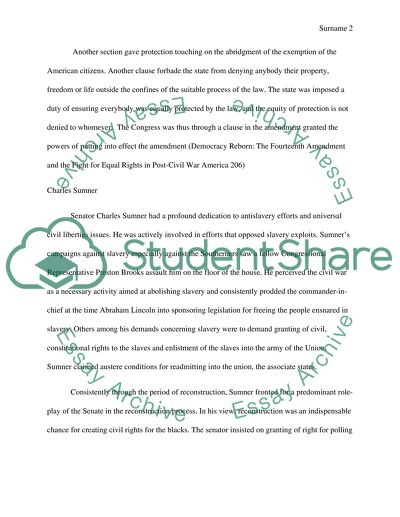Cite this document
(“The Era of Reconstruction in American History and Its Aftermath Essay”, n.d.)
Retrieved from https://studentshare.org/history/1676844-the-era-of-reconstruction-in-american-history-and-its-aftermath
Retrieved from https://studentshare.org/history/1676844-the-era-of-reconstruction-in-american-history-and-its-aftermath
(The Era of Reconstruction in American History and Its Aftermath Essay)
https://studentshare.org/history/1676844-the-era-of-reconstruction-in-american-history-and-its-aftermath.
https://studentshare.org/history/1676844-the-era-of-reconstruction-in-american-history-and-its-aftermath.
“The Era of Reconstruction in American History and Its Aftermath Essay”, n.d. https://studentshare.org/history/1676844-the-era-of-reconstruction-in-american-history-and-its-aftermath.


